Do you have what it takes for a nonclinical career?
All you've done for the past few years or past few decades is treat patients... whether medicine or surgery, what makes you think you could work make a rewarding contribution to a company or even start your own business? After all, you don't even know where to start.
Sound discouraging? It reflects what I hear from many physicians daily. After all, studying, training, practicing medicine - well, they all have one purpose, for you to practice medicine. Think about that, is there any other career path that seemingly locks its members into once very narrow set of careers? And, is there any other career path as difficult to enter, with professional standards as high or continuing development so intense?
Why do so many highly intelligent, highly trained and highly skilled people feel they are so limited in their career choices and options? You can answer that question as well as I can. But, in answering it, is your belief really reasonable? There are essentially two answers to that question. First, it's what you were told since the day you entered medical school. Second, it is a perception encouraged by society. No one asks a doctor what he or she does other than relative to specialization. It's assumed a doctor practices medicine. "Doctoring" is synonymous with practicing."
But this is the truth. You do have what it takes to follow any career for which you have interest, skill and knowledge. Physicians are always in a hurry, and when focused on career change they are no different. But, career change is different. It takes time, focus and persistence - much like becoming a physician. However, in career change, you're not really starting new, you are taking a next step.
Just like treating a patient, you begin with a diagnosis. That's the the most difficult part -- looking inwardly to render a diagnosis based on your interests, your skills and your span of knowledge. And, let me stress, at the beginning of the transition process, it is very inwardly focused. It's about you and what you want. However, once you make those decisions, the process becomes easier. You need to plan how you will present yourself and to whom, and then you need to operationalize your network. Once you begin networking, it's only a matter of time before you begin to realize all the things you could be doing - other than practicing medicine.
If you'd like to learn more, don't hesitate to contact me for an initial, no-charge, no-obligation Hallway Consult... Call/Text: 720-339-3585.

